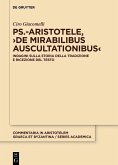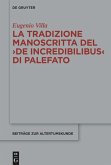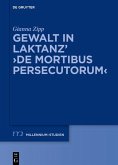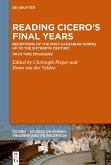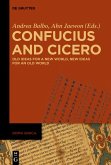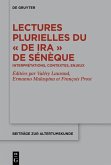The transmission and reception of the
De mirabilibus, a collection of marvelous tales ascribed to Aristotle, is here presented comprehensively for the first time, from the manuscript sources to the secondary tradition (quotations, allusions and translations). The book paves the way for a better understanding of the structure of the text and its many philological puzzles, providing a solid basis for future study.
Dieser Download kann aus rechtlichen Gründen nur mit Rechnungsadresse in A, B, BG, CY, CZ, D, DK, EW, E, FIN, F, GR, HR, H, IRL, I, LT, L, LR, M, NL, PL, P, R, S, SLO, SK ausgeliefert werden.



